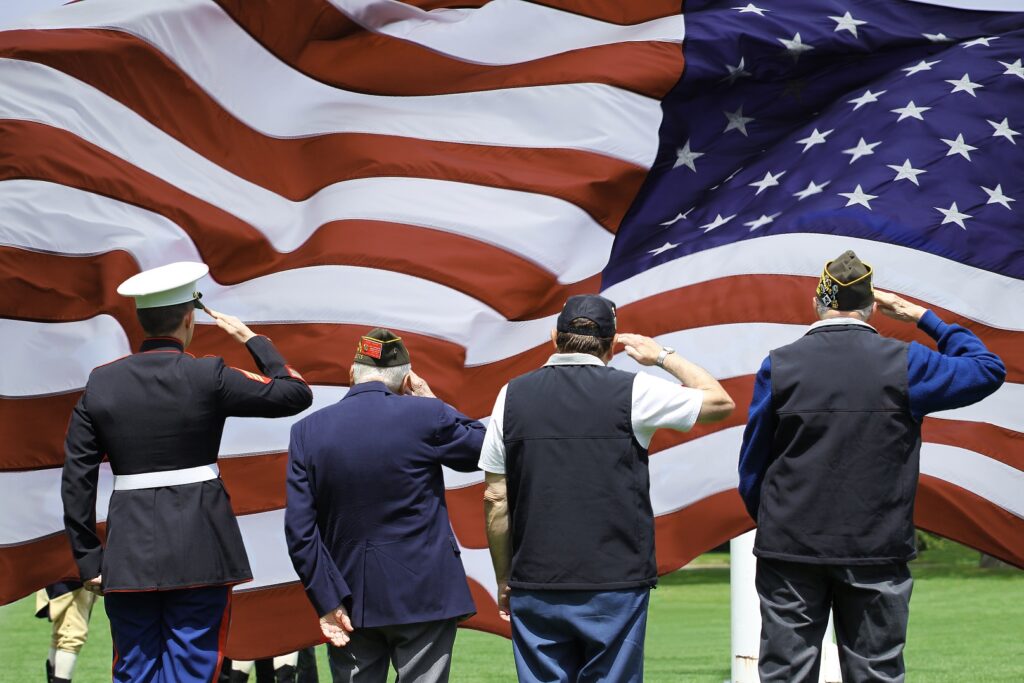
Veterans who live in rural areas face unique health care challenges such as higher rates of chronic disease, a lack of access to health care providers and specialty services, as well as substance use and mental health services. With nearly four percent of Oklahoma’s population classified as veterans in rural communities, the need for innovative solutions to improve care for these individuals is crucial.
Oklahoma State University remains committed to the military service members who have served or are currently serving our country to protect our freedoms. Strategic partnerships at the local, state and federal levels continue to generate new opportunities for high quality care and streamlined access to services for veterans in Oklahoma.
Surprisingly, almost half of Oklahoma’s veterans are receiving health care in their local communities reinforcing the need to develop services in those areas. Through a cooperative agreement with the Health Resources & Services Administration, the National Center for Wellness & Recovery at OSU has implemented the Rural Veterans Health Access Program throughout the state of Oklahoma.
NCWR’s RVHAP team works directly with medical facilities, mental health professionals and veterans organizations across Oklahoma to identify needs and develop solutions for the treatment of opioid addiction and substance use disorders.
NCWR utilizes the OSU Center for Health Sciences virtual network, Project ECHO (Extension for Community Healthcare Outcomes), to train providers in rural communities on veteran-specific addiction and mental health conditions, military screening and treatment approaches. The program bridges the gap between the challenges veterans face and the resources available in the communities to create better health outcomes for our veterans in Oklahoma.
Christi Sherrill, MPH, program manager for RVHAP at NCWR said working with this program has allowed her to develop professionally in the areas of mental health services among underserved populations. “My veterans network has increased with opportunities to participate on veteran teams such as the Oklahoma Governor’s Challenge and Tulsa Mayor’s Challenge,” said Christi. “As a woman veteran of the Marine Corps, I have recognized an awareness concerning my personal health care needs that was not present before working with RVHAP.” Christi is working to implement online resources for providers and veterans, expand Project ECHO veteran-related training, implement military screening protocols and establish accredited training on military culture.
In addition to statewide educational and community support, OSU has joined forces with federal, state and city officials as well as private philanthropic groups to establish a new veterans hospital to serve all of northeast Oklahoma.
Located on the OSU Medical Center campus in Tulsa, the facility will be an important veteran resource, operated by the U.S. Department of Veterans Affairs, but developed by and for the local community.
The proximity to OSU’s academic health care facilities will support opportunities for collaboration, joint physician appointments, increased medical residencies and shared services, all of which will improve ease and efficiency for veterans.
“Our Veterans in northeast Oklahoma deserve a much-needed, easily accessible modern medical center where they can receive quality, compassionate care in a timely manner. For OSU-CHS, it’s been a great privilege to be part of this visionary project,” said Dr. Kayse Shrum, president of the OSU Center for Health Sciences. “While caring for veterans is a top priority, the affiliation with the Veterans Affairs Hospital near our Tulsa campus will benefit our students and residents tremendously and further enhance our medical school nationally. Many physicians in practice today benefited from training at a Veterans Affairs hospital. After years of hard work and relentless determination by many civic leaders in Tulsa and local, state and federal elected officials, we have achieved one of the most significant milestones, the funding for this project. We look forward to the start of construction and the completion of the project.”
With educational and community advocacy programs in rural communities throughout the state, and a commitment to expanding health services in Oklahoma, OSU and NCWR are blanketing the state to improve care for our veterans.
Contact the NCWR Addiction Recovery Clinic at OSU at 918-561-1890 to schedule an appointment. In case of a medical emergency, please call 911. For immediate and confidential emotional support, please call 988 to reach the National Suicide and Crisis Lifeline.